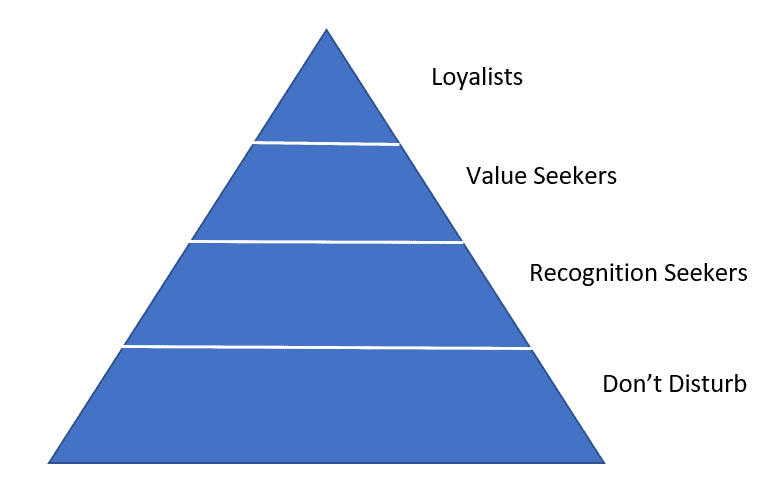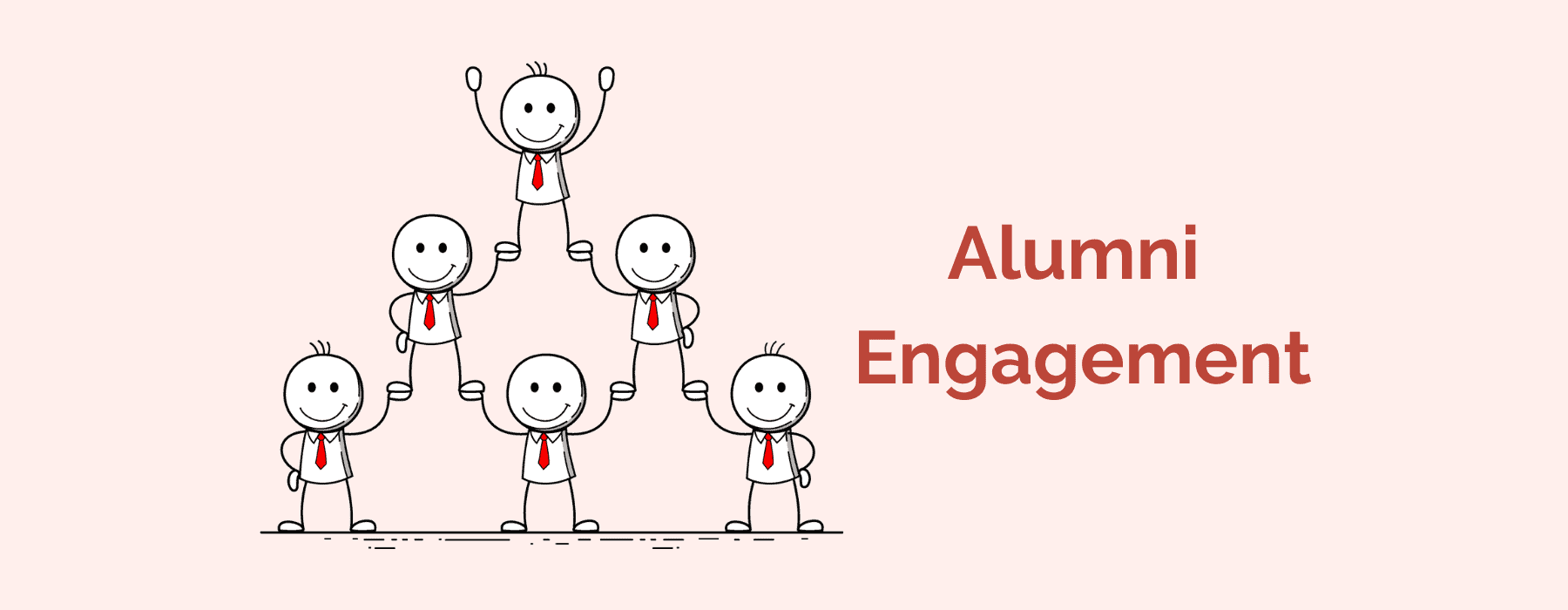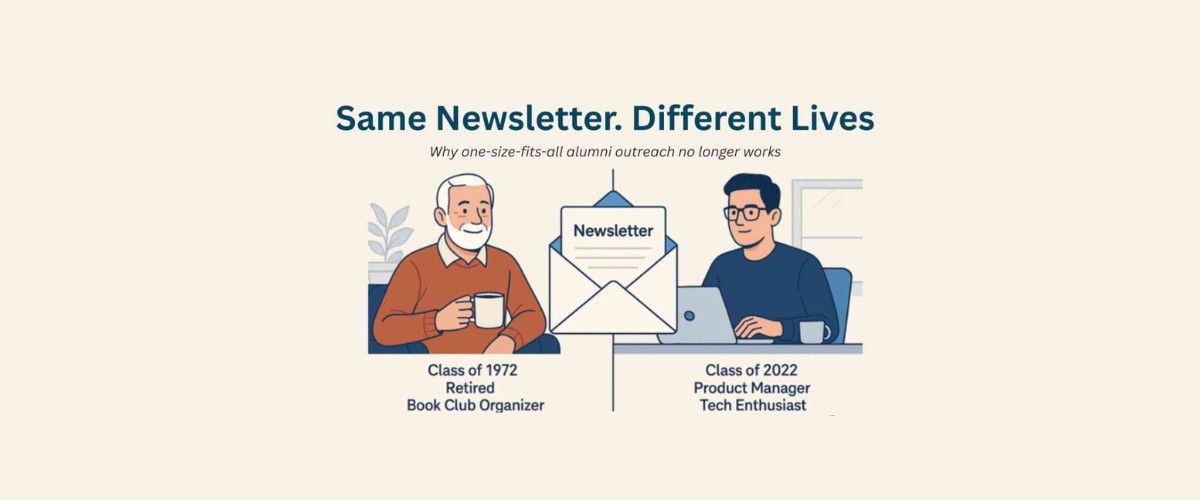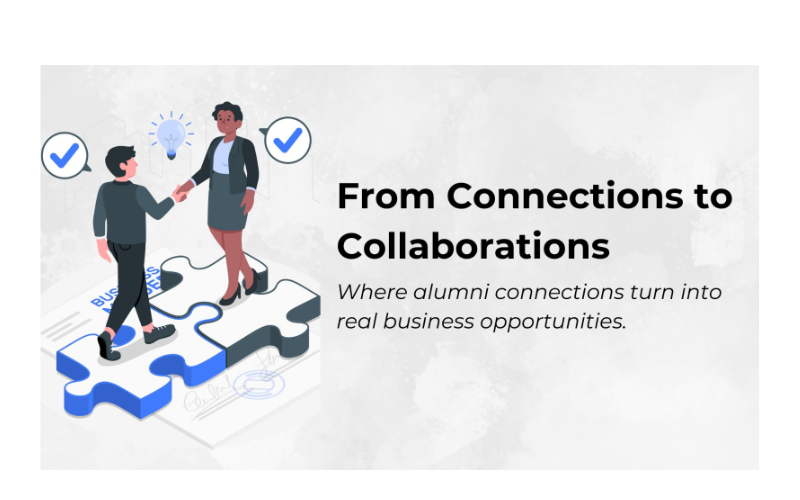The Alumni Triangle is a powerful framework that categorizes alumni based on their level of connection and involvement with the institution. By understanding each type within this triangle, colleges can develop targeted strategies to deepen relationships and transform passive them into passionate advocates.
Understanding the Alumni Triangle and How to Engage Each Type
Alumni are not merely old students. They’re your brand ambassadors, your legacy bearers, and perhaps, your greatest champions. Engaging them is no longer a choice—it’s necessary.
But the thing is, not all alumni are equal. Some are loyal unto death, some attend when there’s an ulterior motive, and some? Well, they’ve effectively ghosted the college. That’s where the alumni triangle comes in.
Let’s break it down, shall we?
What is the Alumni Triangle?
Imagine your alumni population as a triangle. Every level is a group and it is divided based on the level of engagement they have with your school.
Graphical Representation :

Imagine a triangle divided into four horizontal segments. At the top, you have the Loyalists—the most invested. Mid-level are Value Seekers and Recognition Seekers, and at the bottom rest the Indifferent alumni. To our surprise, the bottom is largest, and the top is smallest.
So the question becomes: can we invert that triangle?
The Four Types of Alumni in the Triangle:
1.Loyalists – The Crown Jewels
Who Are They?
These are your ideal alumni. They reply to emails, show up at reunions, post on LinkedIn, and open their wallets willingly during campaigns.
Why They Matter Most
Loyalists build momentum. They assist in building community and establish the bar for what alumni relations should be.
How to Keep Them Engaged
Updates and thank-you notes regularly
Exclusive experiences (receptions, backstage tickets, etc.)
Being featured in newsletters or social media
Make them feel like VIPs—because they are.
2.Value Seekers – The Opportunity Chasers
Identifying Value Seekers
They enjoyed your college, but they’re not stuck on the brand. They’ll participate if there’s something in it for them—such as career guidance or networking events.
Creating Win-Win Opportunities
Provide value: discounts, job listings, free workshops, or even co-branded business ventures.
Value-Driven Campaign Examples
Online courses or certifications
Career mentorship programs
Alumni startup pitch contests
3.Recognition Seekers – The Achievers
What Drives Them?
Ego, for good. They want their accomplishments recognized—and who can blame them?
Seeing Their Successes
Put them in the limelight with:
Social media highlights
Alumni awards
Guest lecture invitations
Turning Recognition into Commitment
After they feel recognized, they’re generally willing to give back—whether that’s time, money, or mentorship.
4.Indifferent/Don’t Disturb – The Untapped Base
Why They Tune Out
Lack of personal connection
Bad college experience
Life just got complicated
How to Reconnect
Use nostalgia: “Remember this place on campus?”
Attempt surveys to grasp their disconnection
Send less often, more personalized messages
Should You Always Attempt?
No. Sometimes it’s alright to let sleeping dogs lie—just don’t forget them completely.
Alumni Triangle vs Reverse Alumni Triangle
Traditional Triangle vs Ideal Triangle
Currently, your triangle likely has Loyalists at the top (small group) and Indifferent at the bottom (large group).
But the ideal? A reverse triangle. A community full of Loyalists.
Why the Reverse Triangle is the Goal
Because loyal alumni:
Enhance brand reputation
Grow student enrollment through referrals
Give generously and consistently
Data-Driven Engagement
Using Analytics to Identify Alumni Types
Track:
Event attendance
Email open rates
Social media interactions
Donation patterns
Segmentation and Targeting
Once segmented, personalize your campaigns. Don’t send a recognition message to someone who’s ambivalent. It won’t stick.
Building Campaigns That Resonate
One Size Doesn’t Fit All
You wouldn’t send a vegan steakhouse coupons, right? Same with alumni. Personalize, always.
Personalizing Communication
Use:
First names
Previous interactions
Mutual memories
Make them think you recall them—not as part of a generic email campaign.
Conclusion
Engaging isn’t a one-time email or an annual reunion. It’s a journey—a thoughtful, strategic, emotionally intelligent process.
Want a thriving community? Flip the triangle. Start small. Speak to each type the way they want to be spoken to.
Because once an alumnus, always a part of your story.





 April 15, 2025
April 15, 2025
